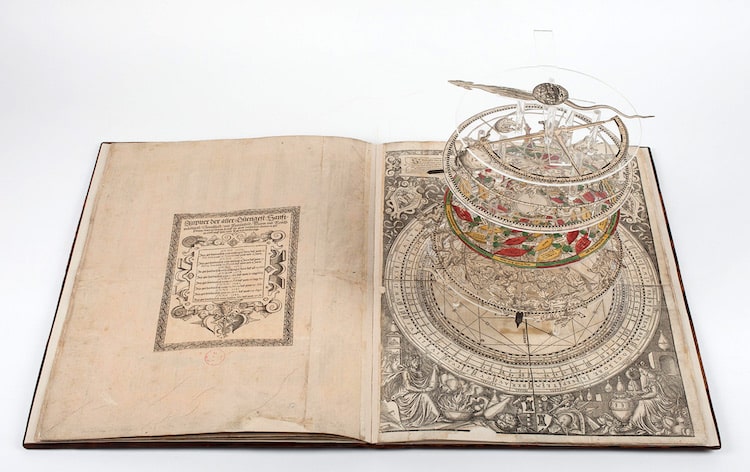
Astrology may seem frivolous to some today, but it figured heavily into world views during the Renaissance. The stars could have a powerful impact on one’s life, including predicting your future. Among the prominent European astrologers was Leonhard Thurneisser, a physician, alchemist, and astrologer who employed his gifts in the court of a German prince. His remarkable work Astrolabium, which was published in 1575, is an astrology geek’s dream, complete with moving paper wheels to accurately chart the stars.
Thurneisser lived from around 1530 to his death in 1596. Born in Basel, he perused a variety of the arts which in the Renaissance fell under the broad heading of science. This included such pursuits as seeking the philosopher’s stone for alchemists and predicting the future for astrologers. Known as a miracle doctor, Thurneisser was eventually denounced by his peer scholars. However, his main achievements still fascinate today: his two intricate works of astrology.
His first tome Archidoxa was published in 1569, and it hazarded predictions based on the star’s movements. Astrolabium followed in 1575. Complex geometric designs bring beauty and math together, aligned within a circle of months and other designations. Moving pieces constructed together, known as volvelles, could be turned and twisted to predict events based on different date factors. The name of the book reflected the paper constructions within, which acted as astrolabes.
These ancient machines rather resemble watches, and their history traces back to ancient Greece. Some of the most famous and beautiful examples were crafted for the princes of the Muslim world, where science flourished during a Golden Age. While paper may pale in comparison to the shiny metals of more durable astrolabes, Astrolabium is just as stunning a creation as other star charting devices of its kind.
How did you divine your horoscope in the 16th century? Well you’d bust out a page of Thurneisser’s Astrolabium, a book with many moving paper “astrolabes.”
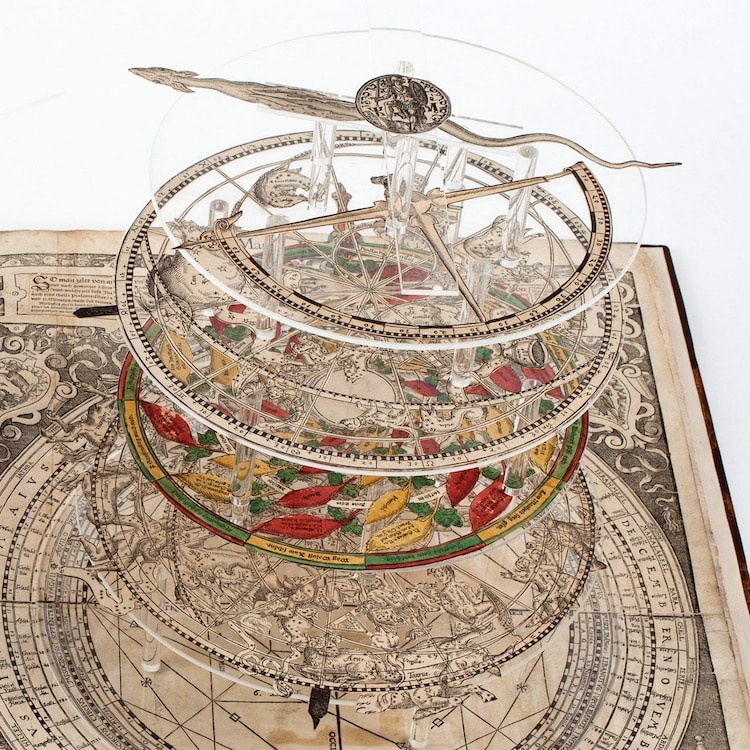
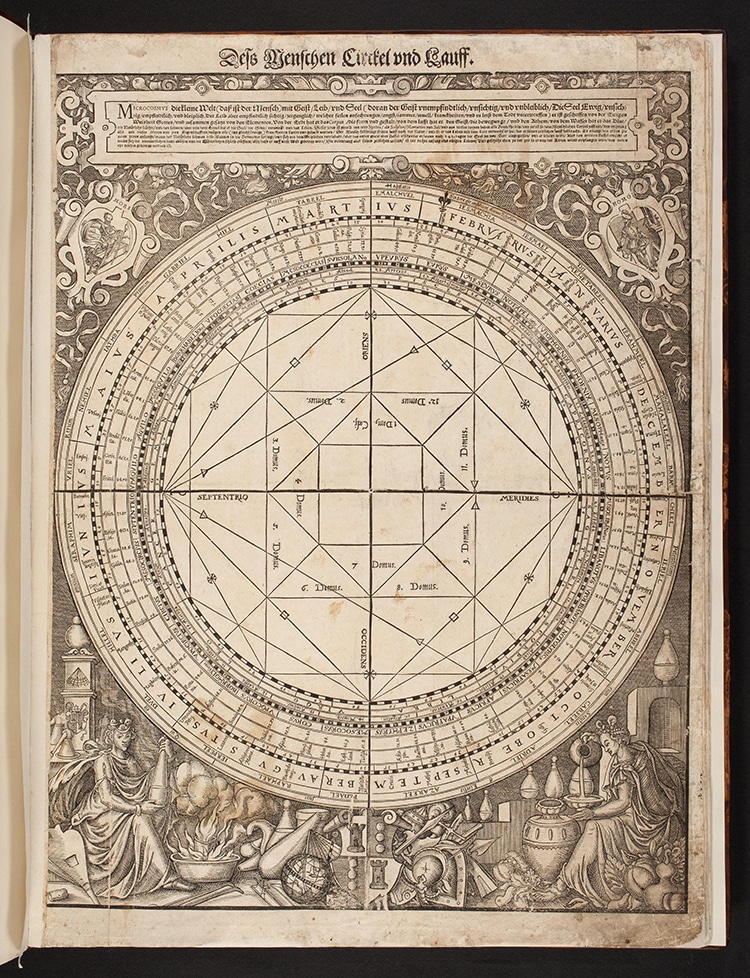
The volvelles are intricate paper layers which can spin to align the stars and predict one’s horoscope.
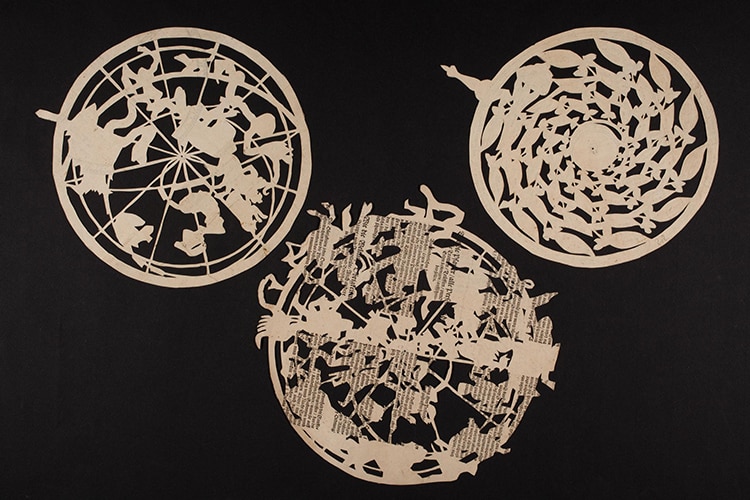
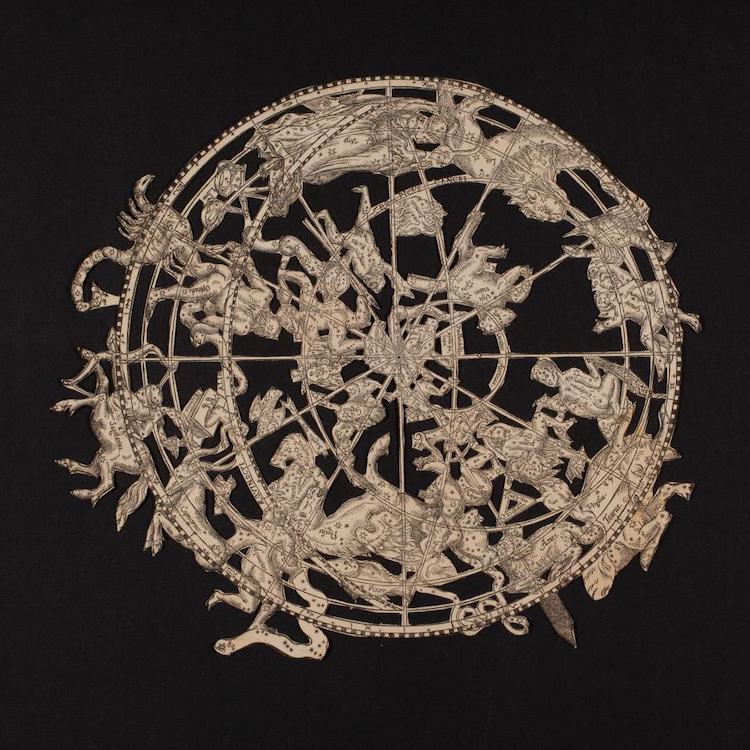
The entire book can be browsed by the astrologically curious online through the Library of Congress.
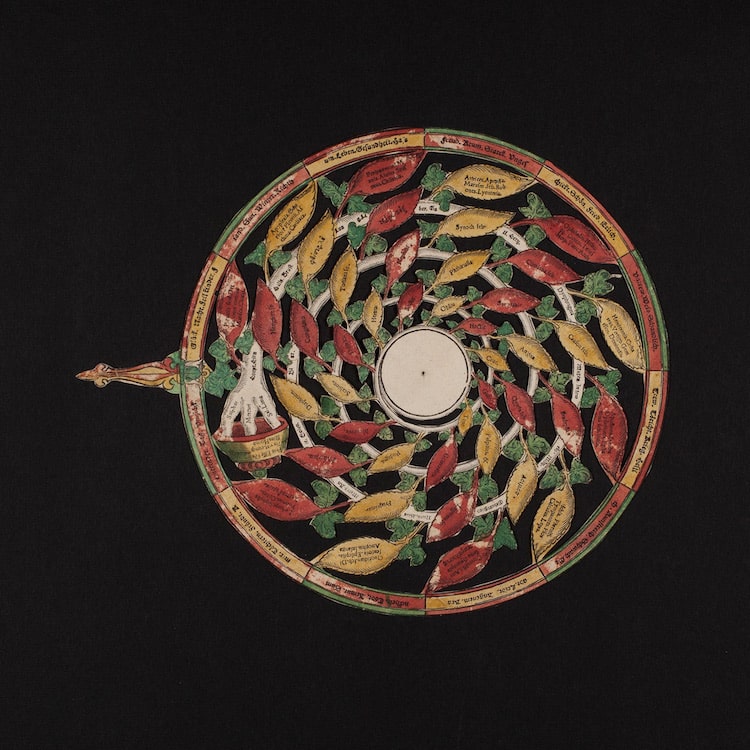
h/t: [Colossal]
All images via Library of Congress.
Related Articles:
600-Year-Old Medieval Clock Shows the State of the Universe in Real Time
Beautifully Engraved and Gilded All-in-One Astronomical Tool
Ornate Renaissance-Era Book Helped Royalty Cast Horoscopes in the 16th Century
These 400-Year-Old Rings Unfold to Reveal Astronomical Spheres
